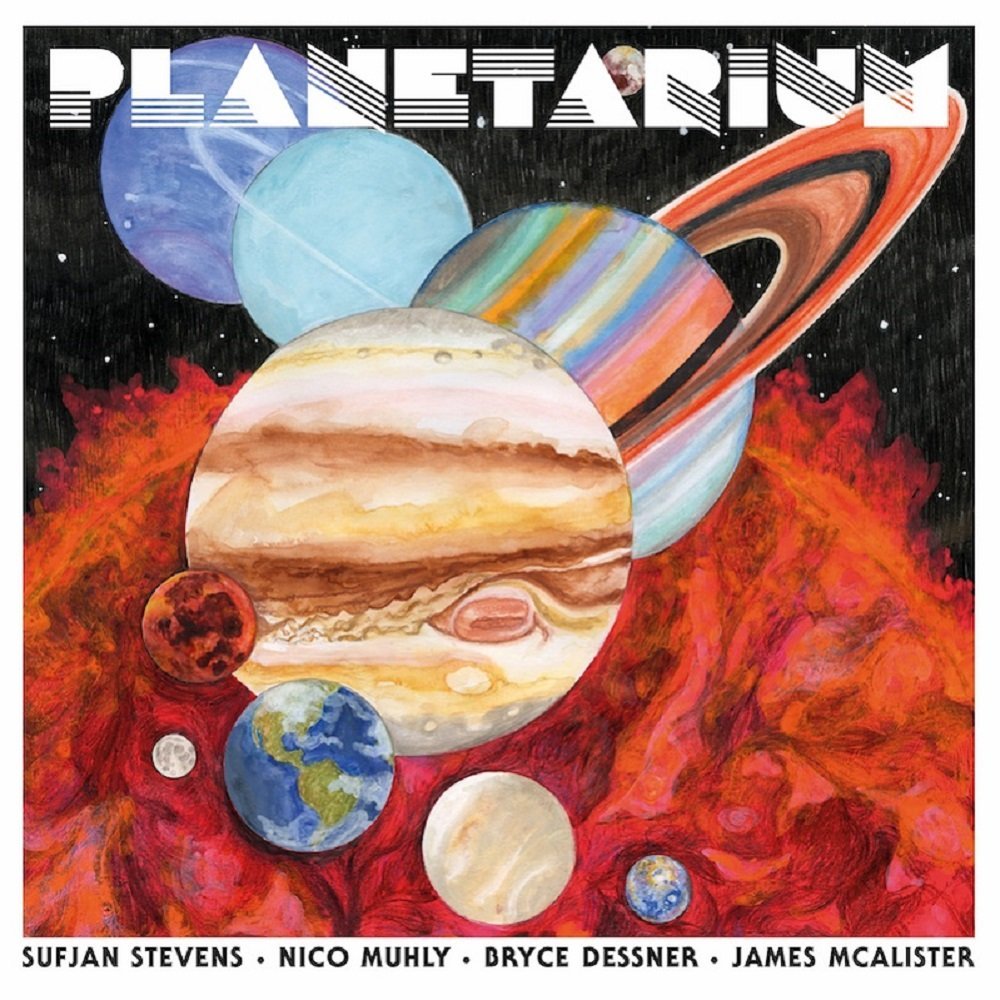“Not from the stars do I my judgement pluck,” the bard declared four centuries back; yet here we are, still staring into the night sky and fancying that destiny gazes back at us. The mythology that Sufjan Stevens, Nico Muhly, Bryce Dessner, and James McAlister apply to Planetarium is somewhat more classical, reflecting on a time when the heavenly bodies were worshipped or feared as gods and monsters. At a sprawling 17 tracks, shared by four distinctive artists, this was always a project that would require as much editorial restraint as starry-eyed abandon. For the most part, the latter wins out.
At any rate, whatever division of labour is identifiable, Planetarium is unmistakably a Sufjan Stevens record, musically every bit the sequel to The Age of Adz that some had hoped for. The noisier contributions here (‘Jupiter’, ‘Saturn’, ‘Earth’) could easily have been marketed as abandoned verses from an early draft of ‘Impossible Soul’, cast off before the song actually surpassed the half-hour mark. The quieter elements are even more stark: the flute trills on ‘Moon’ are lifted straight from ‘Vesuvius’, and closer ‘Mercury’ is all but a Carrie & Lowell off-cut. You even know it’s going to be one of his apology songs when he applies that vocal delay effect – and sure enough, it is.
Between these songs, the album’s quieter interludes allow a degree of breathing space for Muhly and Dessner. (McAlister is primarily credited as contributing the record’s electronic beats, which appear to be lost in Sufjan’s maximalist detours.) Certainly there’s a run of tracks through the middle, beginning with ‘Black Energy’ and running through to ‘Tides’, that offers a pleasant ambient sweep; later, there’s even some thematic instrumentation with the menacing ‘Black Hole’. Even ‘Pluto’, the Sufjan vocal that interrupts the classical stretch, is happily among his less abrasive additions here.
For the most part, though, Planetarium is something of an admirable mess. For an album presumably designed to be consumed as a conceptual whole, there is very little cosmic glue binding the record’s disparate elements, and it feels disjointed. There’s a reasonably solid Sufjan Stevens EP in here, and a majestic Nico Muhly film score, certainly. But for a record more than five years in the making, one might have hoped their stars would be more sweetly aligned by now.
Planetarium is released on 9th June through 4AD.




